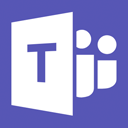9 alternatives to Skype Business for your video conferences and remote meetings
After more than 20 years of loyal service, Skype is living out its final hours. Microsoft has announced the definitive closure of the platform, which closed its doors on 5 May 2025, in favour of Microsoft Teams. While the transition will be smooth for loyal users (who will retain their history and contacts), above all this marks the end of an era... and the ideal opportunity to rethink your communication tools.
Faced with an ever-increasing range of options on the market, how do you choose a solution that's really tailored to your needs? Functionality, simplicity, security or cost: there are many criteria. Here we present 9 alternatives to Skype, some well-known, others more discreet, but all worthy of consideration.
Microsoft Teams: the natural successor to Skype?
With the announcement of the end of Skype, Microsoft Teams has emerged as the obvious replacement. But does this platform live up to expectations? Let's take a look at its strengths and weaknesses.
✅ S trengths :
- Extensive integration with Microsoft 365: Teams integrates seamlessly with Microsoft suite tools such as Word, Excel and SharePoint, offering a unified experience for users already familiar with this ecosystem.
- Beyond simple video conferencing, Teams offers features such as instant messaging, file sharing and task management, centralising collaborative needs in one place.
- Benefiting from Microsoft's secure infrastructure, Teams ensures data protection in line with current standards.
🔎 Weak points:
- For those unfamiliar with Microsoft products, the Teams interface can seem complex, requiring time to adapt.
- Some users report slowness, particularly when using advanced features or on older devices.
- File organisation: document management within Teams can be confusing, with a storage system that is sometimes deemed unintuitive.
Our verdict on Microsoft Teams: the tool is positioned as a robust solution for companies already established in the Microsoft ecosystem. However, you'll need to get used to it before you can master all its subtleties.

Microsoft Teams
9 alternatives to Skype Business
1 of 10
 Microsoft Teams |  Google Workspace |  GoToMeeting |  Livestorm |  ClickMeeting |  Jitsi Meet |  Tox |  Webex |  Zoom Video Conferencing |  Whereby |
|---|---|---|---|---|---|---|---|---|---|
| For all companies | For all companies | For all companies | For all companies | For all companies | For all companies | For all companies | For companies with more than 250 employees | For all companies | For all companies |
| See software | See software | See software | See software | See software | See software | See software | See software | See software | See software |
| Learn more about Microsoft Teams | Learn more about Google Workspace | Learn more about GoToMeeting | Learn more about Livestorm | Learn more about ClickMeeting | Learn more about Jitsi Meet | Learn more about Tox | Learn more about Webex | Learn more about Zoom Video Conferencing | Learn more about Whereby |
Google Meet: easy-to-use video conferencing
With its Google Meet platform as part of its Google WorkSpace suite, the American publisher is enabling all its users to hold high-quality videoconferences from Google or the application available on iOS and Android.
- Do you want a record of your meeting, but want to stay focused on the discussions rather than taking notes? Gemini will take care of that for you! Once the meeting is over, you'll find the transcript, a summary and a to-do list in a Google Doc.
- Since 2025, if two or more of you are taking part in the same videoconference in the same room, the audios are automatically merged. How many times have we suffered feedback at Appvizer? We appreciate adaptive audio, and not just a little!
- The number of participants in a meeting is limited to 100 in the Business Starter package, and up to 1,000 in the Enterprise package.
- The main advantage of Google Meet is its ease of use (nothing to install, a single URL to access a conference).

Google Workspace
GoTo Meeting: the professional videoconferencing experience
Developed by GoTo (formerly LogMeIn), GoTo Meeting is aimed at businesses looking for a reliable tool for organising meetings online, without the headache.
- It's quick to get to grips with, with a clear interface for scheduling, joining or recording meetings in just a few clicks.
- The tool offers advanced functions such as screen sharing, a collaborative whiteboard and automatic transcription of exchanges.
- It integrates easily with your everyday tools: Outlook, Google Calendar, Microsoft Teams, Slack, etc.

GoToMeeting
Livestorm: the French platform for your B2B webinars
Livestorm is a made-in-France solution, designed for companies that want to organise engaging online events: webinars, training sessions, product demos...
- Everything takes place directly in the browser, without downloading, for maximum accessibility.
- You'll appreciate the automatic follow-up functions, customisable forms and detailed statistics on participation.
- As far as compliance is concerned, Livestorm complies with the RGPD and hosts data in Europe: a real plus for companies concerned about confidentiality.

Livestorm
ClickMeeting: videoconferencing for business and education
ClickMeeting is aimed at SMEs, training organisations and consultants looking for a flexible solution for organising remote sessions, whether commercial or educational.
- The tool can be used to run interactive webinars with polls, chat modules, Q&A sessions and document sharing.
- The meeting space can be customised to your image, with your logo, colours and media.
- Several speakers can co-host a session, making it an ideal solution for workshops or multi-voice presentations.

ClickMeeting
Jitsi: the open source videoconferencing tool
Jitsi is positioned as a free, open-source alternative to Skype.
- Originally named SIP Communicator, Jitsi is capable of interfacing with other instant messaging services such as Facebook Messenger and Google Meet.
- As its name suggested at the time, Jitsi uses SIP (Session Initiation Protocol ) to establish audio and video communications over the Internet.
- As well as being open source, Jitsi has 3 key advantages over Skype: the ability to encrypt communications using ZRTP to protect the confidentiality of your exchanges, a short URL to send to participants to quickly join the conference (eg.https://monsite.com/maconférence) and the ability to broadcast conferences live on YouTube.

Jitsi Meet
Tox: a free tool and encrypted communications
Tox is a free, ad-free videoconferencing tool. It is positioned as a simple alternative to the solutions on the market, with one feature that is the subject of much debate: the encryption of communications using end-to-end encryption.
- The solution was created in the wake of the Edward Snowden revelations and aims to provide optimum data protection: while publishers can read and deliver the content of your conversations, Tox offers the guarantee that your conversations will not be listened in on by anyone other than you.
- Data is transmitted peer-to-peer rather than via a central server, and the IP address is only visible to other conference participants.
- As it is not a commercial product, bugs may occur, but its availability on Windows, macOS, Linux, Android and IOS is another strong point.

Tox
WebEx Meetings: a major competitor
From Cisco, Webex is an alternative with a user-friendly interface that has been adopted by millions of users. It offers high-definition audio and video quality.
- You can transfer files, share your screen and take control of other participants' screens.
- Available on all platforms, Webex also lets you connect to your Microsoft Outlook account (email, calendar), record meetings and watch them later.
- Exchanges are secured by AES 256-bit encryption. A bonus is its interoperability with Slack and Workplace by Facebook. As part of its Business package, Webex can accommodate up to 200 participants.

Webex
Zoom: the essential solution since the pandemic
This Californian solution is very popular with large companies, because its technology is more recent than that of Skype or WebEx, and can support up to 1,000 participants.
- Zoom offers real-time messaging and content sharing. Zoom meetings synchronise with your calendar system and offer simplified corporate videoconferencing, on your computer or portable devices.
- Video and audio are in HD, you can record your meetings locally or in the cloud and consult transcripts generated by artificial intelligence.
- Other features include screen sharing and co-annotation, and end-to-end encryption.

Zoom Video Conferencing
Whereby: video connection without constraints
Whereby (formerly appear.in) is an alternative offering a free version with a virtual meeting room for up to 4 people.
- There are several advantages: good audio and video quality and the ability to take part in a videoconference without having to create an account or install any software.
- Features include URL customisation, screen sharing and secure conversations.
- The paid versions (for freelancers, VSEs and SMEs) offer 3 virtual meeting rooms, 12 participants, the option of recording the conference and integration with your diary.

Whereby
How do you choose videoconferencing software?
The market for video conferencing tools is vast, and the promises often sound the same. To make an informed choice, you need to think about usage, not just features.
1. Criteria to consider
- Ease of use: a fluid tool, accessible to all, with no complex installation.
- Audio/video quality: essential for frictionless business exchanges.
- Collaborative features: screen sharing, whiteboarding, recording, moderation, etc.
- Data security: encryption, RGPD compliance, server hosting.
- Compatibility: with your existing tools (Google Workspace, Microsoft 365, CRM, etc.).
- Technical support: reactivity and documentation in the event of a problem.
- Scalability: ability to scale up or organise more complex events (webinars, training, etc.).
2. The right questions to ask yourself
- How many participants are my meetings intended for?
- Are my participants internal, external or a mix of the two?
- Do I need to record or moderate the exchanges?
- Are my teams already familiar with an ecosystem (Google, Microsoft, other)?
- Does the solution need to be hosted in Europe?
- What is my budget in the short... and medium term?
3. Our expert opinion
There's often a tendency to look for "the best tool", when in fact you need to find the right tool for the job. A start-up does not have the same constraints as an IT department, a consultancy or a training school. Start with your real needs, test two or three platforms (most offer trial versions), and involve future users in the choice. A good tool is one that your teams will want to use, not just one that ticks all the boxes on paper.
Comparison table of the best alternatives to Skype Business
| Software | Typical users | Benefits and key features |
|---|---|---|
| Microsoft Teams | SMEs, large companies, Microsoft 365 teams | Microsoft 365 integration, complete collaborative space, enhanced security, messaging + videoconferencing |
| Google Meet | Start-ups, freelancers, Google Workspace users | easy to use, browser-based, Gmail/Agenda integration, fast and reliable |
| Zoom | All sizes of company, trainers, customer services | video/audio quality, webinars, sub-committee rooms, automatic recording |
| Webex Meetings | Large groups, sensitive sectors, demanding IT | advanced security, pro features, integration with business tools, solid technical support |
| GoTo Meeting | SMEs, consultancies, sales teams | clear interface, meeting transcription, collaborative whiteboard, Outlook integration |
| Livestorm | Marketing, HR, training, B2B SaaS | automated webinars, no installation, RGPD-ready, integrated analytics, data hosted in Europe |
| ClickMeeting | Training organisations, consultants, agencies | interactive webinars, personalisation, multi-presenters, chat and Q&A |
| Whereby | Start-ups, freelancers, small teams | quick connection without an account, minimalist interface, browser-based, ideal for one-off calls |
| Jitsi | Technical users, associations, organisations concerned about sovereignty | open source, free, no registration required, self-hosting, respect for privacy |
FAQ - Finding the right alternative to Skype Business
Is Microsoft Teams really the ideal replacement for Skype Business?
Microsoft Teams is the official successor designated by Microsoft. It includes all the features of Skype Business, but goes one step further with a complete collaborative workspace: video conferencing, messaging, document sharing, project management, etc. For companies that are already Microsoft 365 customers, the transition is smooth and logical. On the other hand, for those looking for a lighter solution or one that focuses solely on videoconferencing, other alternatives may be more appropriate.
Which alternative should a small business or start-up choose?
For light structures, simplicity and cost are key criteria. Whereby, Google Meet or Livestorm (depending on your webinar needs) are wise choices. They are quick to get to grips with, offer sufficient functionality for effective meetings, and avoid the gasworks. Some solutions, such as Jitsi, may also be suitable for one-off, free use.
Which solution should I choose to guarantee the confidentiality of exchanges?
If security is a major issue, choose platforms with end-to-end encryption and strict compliance with the RGPD. Livestorm, ClickMeeting (hosted in Europe), or Jitsi (open source) are options to consider. Webex and Microsoft Teams also offer solid guarantees for demanding IT environments.
Which platforms allow meetings to be recorded automatically?
Most professional tools offer recording, but not all do it natively or automatically. Zoom, GoTo Meeting, Webex, Microsoft Teams and ClickMeeting allow you to record your meetings, often with cloud storage and transcription options. However, check the limits for each package.
Which alternative to Skype Business should you choose?
The announced end of Skype Enterprise opens up a real opportunity to rethink your remote communication tools. And just what you need! The market is full of solutions designed for business use, from quick meetings to large-scale client presentations.
The right choice will depend on your priorities:
- Simplicity? Google Meet or Whereby.
- Advanced features? Zoom, Webex or GoTo Meeting.
- Webinars? Livestorm or ClickMeeting.
- Microsoft environment? Teams is the obvious choice.
- Open source approach? Jitsi can do the job... in a more limited context.
In short, there is no single alternative, but tools adapted to each context. The key is to adopt a solution that makes collaboration easier, without adding complexity. And if it also meets your security or sovereignty requirements, that's even better.

Maëlys De Santis is Head of Marketing at Appvizer, where she leads the editorial strategy and oversees a corpus of more than 4,000 pieces of content to help micro-businesses and SMEs choose the right software. Since 2017, she has written and overseen several hundred practical guides, solution comparisons and trend analyses covering a wide range of categories: marketing, project management, finance, HR, customer service, IT and collaboration tools.
Specialised in analysing SaaS trends and assessing B2B offerings, she draws on feedback from the field, market studies and ongoing conversations with the ecosystem (publishers, integrators, events such as B2B Rocks). Her background in translation and communication is key to turning sometimes highly technical software presentations into clear, concrete and immediately actionable advice for decision-makers looking to structure their software stack.